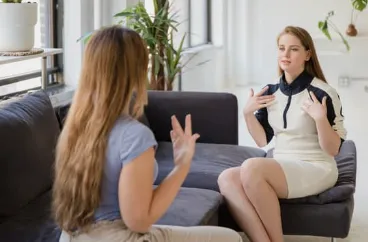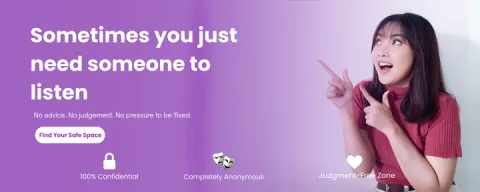Most people think listening is about waiting for your turn to talk. But the most powerful form of listening often happens before you say anything at all. Learn how your body language creates emotional safety and builds deeper trust in every conversation.
Your Body Speaks Before You Do
Most people think listening is about waiting for your turn to talk. But the truth is, the most powerful form of listening often happens before you say anything at all. In relationships, in leadership, and even in quiet moments with a friend, your body language can be a stronger message than any well-worded reply.
Body Language Is Emotional Evidence
Body language is emotional evidence. It reveals whether you are really there, whether you care, and whether you are safe to open up to. When someone is struggling, unsure, or emotionally exposed, what they need most is not your advice. What they need is your presence. And presence is something you show. This is why
talking through fears works better when the listener shows they're truly present.
Why Body Language Is More Than a Supplement
Think of body language as the foundation beneath everything else. Your words rest on top of it, but the structure below determines how they land. People notice when your face doesn't match your tone. They feel it when your posture is closed or when your eyes drift away while they are speaking. And the message that sends is louder than anything you could say.
When Body Language Aligns With Your Intention
• You become a steadying force in the room
• You build psychological safety
• You create emotional trust
• Even kind words feel more genuine
The Signals That Show You're Really Listening
Your body language sends powerful messages about your presence and care. Here are the key signals that create trust and emotional safety:
Eye Contact
Maintaining warm, steady eye contact shows someone they have your full attention. Not staring, but being with them through your gaze. It invites trust and helps someone feel seen.
Open Posture
Open posture tells the other person they are welcome. Leaning in slightly, relaxing your shoulders, and facing them with your full body sends a clear message: you are here and not in a hurry to leave.
Facial Expression
Your face reflects your presence. A calm, curious, or empathetic expression signals care. A raised brow of interest or a gentle smile can make someone feel supported without you needing to speak.
Nods and Silence
Small nods, slow and intentional, encourage someone to keep talking. Silent moments after they finish speaking give space for thought and show you are not rushing to respond. It tells them what they just said matters.
Tone of Voice
Your tone, even when saying simple things like 'I hear you' or 'I get that,' can carry more meaning than the sentence itself. A calm, grounded voice reassures people on an emotional level.
Why It Matters in Every Context
Whether you're leading a team, showing up for a friend, or building a partnership, your ability to create emotional safety matters more than you think. People don't remember every word you said, but they remember how you made them feel. And much of that feeling comes from the silent language between your words. This is especially important when
supporting someone with mental health challenges - your presence can be more healing than any advice.
Show Up Without Speaking
Next time someone opens up to you, notice what your body is doing. Are you fully there, or halfway somewhere else? Are your shoulders tense, your eyes darting, your arms crossed? Or are you relaxed, open, and grounded? You don't need the perfect response. You just need to show them they're not alone. And you can say that with nothing but your presence. Remember, as we explored in
the power of empathetic listening, being truly heard starts with feeling truly seen.
Need Someone Who Shows Up With Their Whole Presence?
Sometimes we all need to be heard by someone who truly knows how to listen—not just with their ears, but with their entire presence. LissnUp's trained listeners understand the power of being fully present for whatever you need to share.





